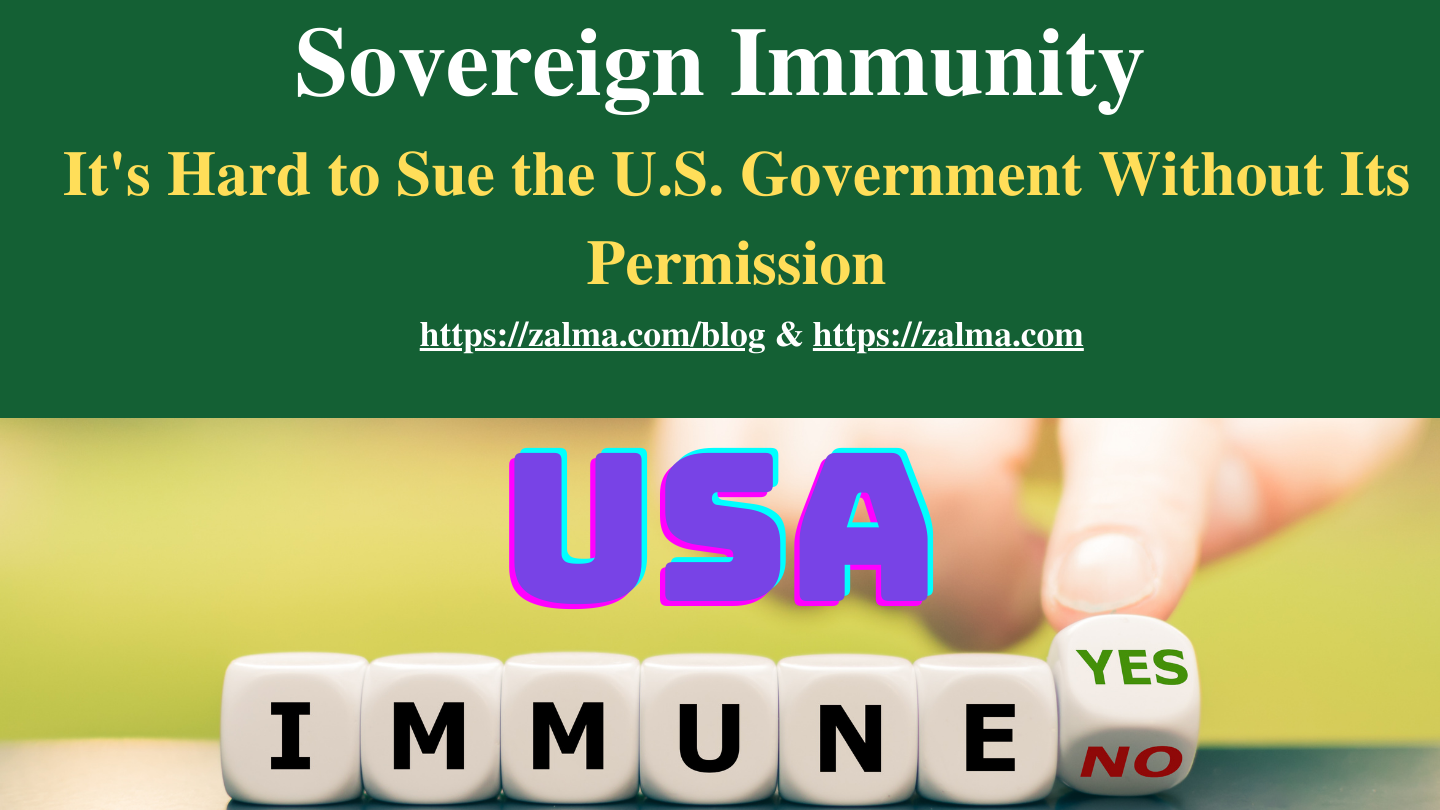-
News Feed
- EXPLORE
-
Pages
-
Groups
-
Events
-
Blogs
-
Marketplace
-
Offers
-
Jobs
-
Developers
Sovereign Immunity

Sovereign Immunity
Read the full article at https://lnkd.in/gmKgq2V4 and see the full video at https://lnkd.in/gvtkjeER and at https://lnkd.in/ggtZrnDR and at https://zalma.com/blog plus more than 4500 posts.
Roberta Jean Champlin appealed a decision from the United States Court of Federal Claims dismissing for lack of subject matter jurisdiction her claim that the United States must pay damages for the nonpayment of life insurance proceeds from her deceased former husband’s Federal Employees Group Life Insurance policy.
In Roberta Jean Champlin v. United States, No. 2022-1402, United States Court of Appeals, Federal Circuit (April 10, 2023) Ms. Champlin sought payment of a Federal Employees’ Group Life Insurance (FEGLI) policy after he ex-husband died because her divorce decree granted her half ownership in the policy.
BACKGROUND
The Federal Employees’ Group Life Insurance Act (FEGLIA) establishes a group life insurance program for federal employees. The United States Office of Personnel Management (OPM) is responsible for managing FEGLI polices and has entered a contract with Metropolitan Life Insurance Company (MetLife) to provide insurance to federal employees.
When these circumstances are met, the proceeds “shall be paid (in whole or in part) by the [OPM]” to the individual who is entitled to the proceeds under the court order.
Factual & Procedural Background
Lewis Dean Champlin had life insurance through a FEGLI policy. In September 2012, the Champlins divorced. As part of their divorce proceedings Ms. Champlin paid for half of the policy.
On January 3, 2016, Mr. Champlin died. Ms. Champlin did not receive her half of the proceeds. Instead the proceeds were paid to Mr. Champlin’s designated beneficiary at the time of his death-Marilyn Susano.
FEGLI-related claims cannot be against the United States because the government has not waived its sovereign immunity for such claims.
DISCUSSION
The Federal Circuit concluded that Court of Federal Claims is a court of specific jurisdiction and can resolve only those claims for which the United States has waived sovereign immunity.
Because the United States’ duties under the FEGLIA and relevant regulations do not extend to claims for proceeds due under a FEGLI policy, Ms. Champlin failed to establish that the United States breached any duty.
ZALMA OPINION
The US had no obligation under the FIGLIA statute and did not waive its sovereign immunity. She could have sued MetLife but did not. Alaska’s court order could not compel the US to do anything and if anything her case is against the ex-husband’s estate for not complying with the Alaska Order to make her a designated beneficiary. A person can only sue the government if it waives its sovereign immunity. Since it did not do so she had no case.
(c) 2023 ClaimSchool, Inc.
Subscribe and receive videos limited to subscribers of Excellence in Claims Handling at locals.com https://lnkd.in/gfFKUaTf.
We are 100% funded for October.
Thanks to everyone who helped out. 🥰
Xephula monthly operating expenses for 2024 - Server: $143/month - Backup Software: $6/month - Object Storage: $6/month - SMTP Service: $10/month - Stripe Processing Fees: ~$10/month - Total: $175/month
- Art
- Causes
- Crafts
- Crime
- Dance
- Drinks
- Film
- Finance
- Fitness
- Food
- Games
- Gardening
- Health
- Home
- Literature
- Music
- Networking
- Paranormal
- Other
- Politics
- History
- News
- Party
- Science
- Religion
- Shopping
- Sports
- SyFy
- Politically Incorrect
- Philosophy
- Theater
- Technology
- Wellness



